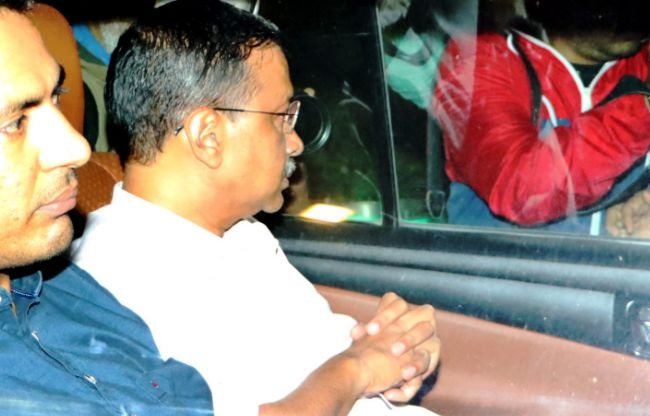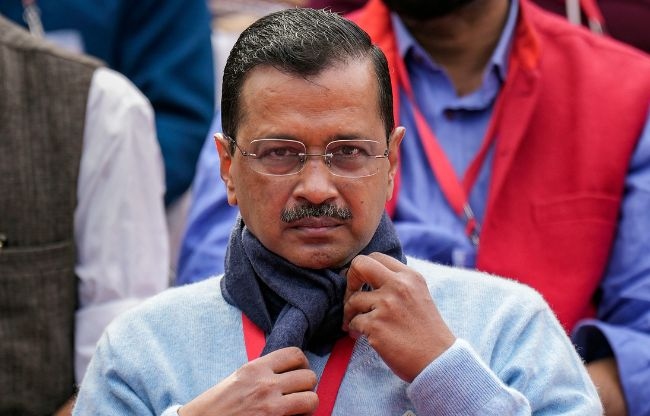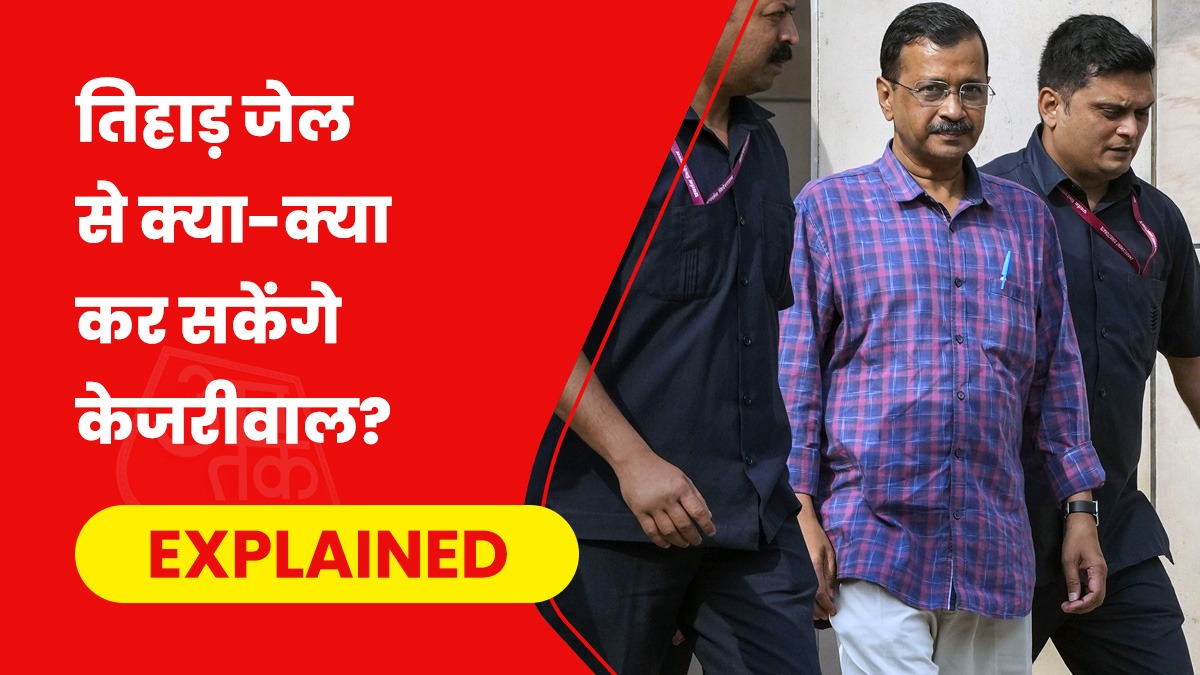Delhi's Chief Minister Arvind Kejriwal will now face the realities of jail life. The Rouse Avenue Court has remanded him into custody until April 15.
The Enforcement Directorate arrested CM Kejriwal on March 21 over the purported liquor scandal. After spending time in ED's detention, he now will see out 15 more days in judicial custody.
Kejriwal is joined in Tihar Jail by Manish Sisodia, Sanjay Singh, and K. Kavitha, all arrested in the same scandal.
The spotlight now turns to Kejriwal, who is still holding the Chief Minister's office, thus raising questions about his ability to govern from behind bars.
Can Kejriwal Run the Government from Jail?
Former Superintendent of Tihar Jail, Sunil Gupta, shared insights into the nuances of a serving CM operating from prison. According to the 2000 Delhi Prison Act, any location or building can be designated as a jail, which could potentially allow Kejriwal to continue his duties from custody. However, the power to exercise this lies with the Lieutenant Governor.
Sunil Gupta recalled that when Subrata Roy Sahara was imprisoned, a complex within the jail was proclaimed as a jail where he had access to the internet, phone, and video conferencing. This setup enabled Sahara to manage sales and clear debt to secure his bail.
However, given the strained relations between Kejriwal and LG VK Saxena, Gupta believes it's highly improbable that Kejriwal will receive such facilities.

Source: aajtak
The Remote Control of Governance: Improbable, but Not Impossible
Without these privileges, managing government affairs from jail becomes a Herculean task. Traditional prison rules make it almost impossible to conduct regular activities, let alone govern a state.
Delhi's prison manual dictates that a prisoner can speak or meet only those individuals out of a pre-approved list of ten. This limitation could hinder efficient governance communication.
The manual allows a half-hour visitation twice a week, with a maximum of three visitors at a time, strictly scheduled between certain hours.
Nevertheless, there's no legal barrier to stop Kejriwal from governing in jail, but doing so effectively would be incredibly challenging.
A prisoner's actions are subjected to court orders. A prisoner can sign legal documents through a lawyer, but signing governmental documents warrants court permission.
Imprisoned leaders may run for elections and attend legislative proceedings but are prohibited from hosting gatherings. When ED had detained Hemant Soren in January, the PMLA court permitted him to participate in a trust vote.
Kejriwal, during his ED detention, issued two government orders. However, LG VK Saxena has made it clear that the government will not be run from jail, hence Kejriwal must seek court approval for any official action while incarcerated.

Source: aajtak
Arrested on March 21
Kejriwal finds himself in a tangle over the alleged liquor scam. The ED is probing his role in it and had issued him nine summonses. The first was sent last year on November 2nd, yet Kejriwal has yet to appear for any.
On March 21st, seeking relief from arrest, Kejriwal appealed to the High Court, which was subsequently rejected. Following the court's decision, the ED served him with a tenth summons that evening.
ED investigators interrogated Kejriwal for two hours before detaining him, making him the first sitting Chief Minister to be arrested. He was remanded to ED custody until March 28th, which then extended to April 1st. Now, the Rouse Avenue Court has ordered a 15-day judicial remand.
ED has claimed in court that Kejriwal is not cooperating with the investigation.




